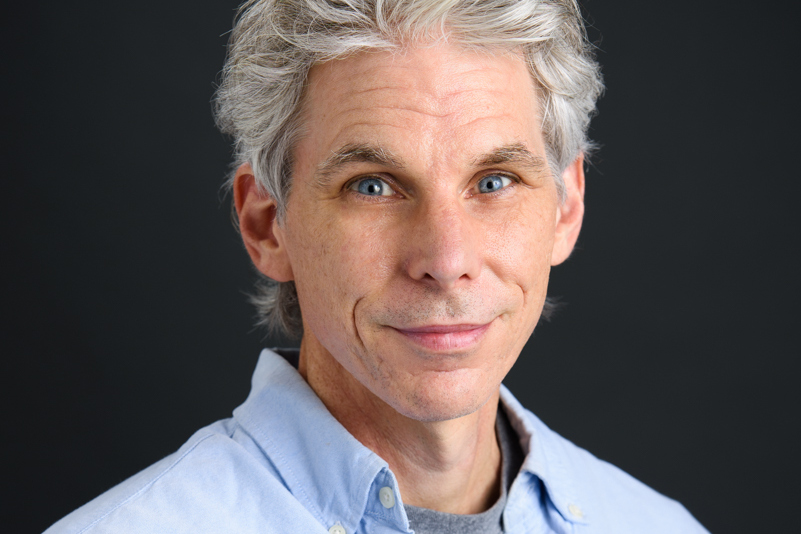
Richard Bailey talks about DIY filmmaking. He anchors it on his experience writing, producing and directing his two films, A Ship of Human Skin, and King Judith. Both are available to watch freely on Tubi.
Richard grew up on a small farm in central east Texas. He didn’t have many movie-going experiences as a child. But he had cinematic experiences all the time. Experiences like watching wind move across a field of grass like a wave. And playing games with the blurred ghosts that lived in the antique glass of my parent’s dresser.
“I’ve a life-long attraction to macabre literature”, says Richard. “Landscape plays a part in the terror and liberation inherent in these stories”, continues Richard. He loves to work outdoors in natural light and to find features in the landscape that serve as correlatives for the inner lives of my characters—natural features that signal wonder, epiphany, or despair.
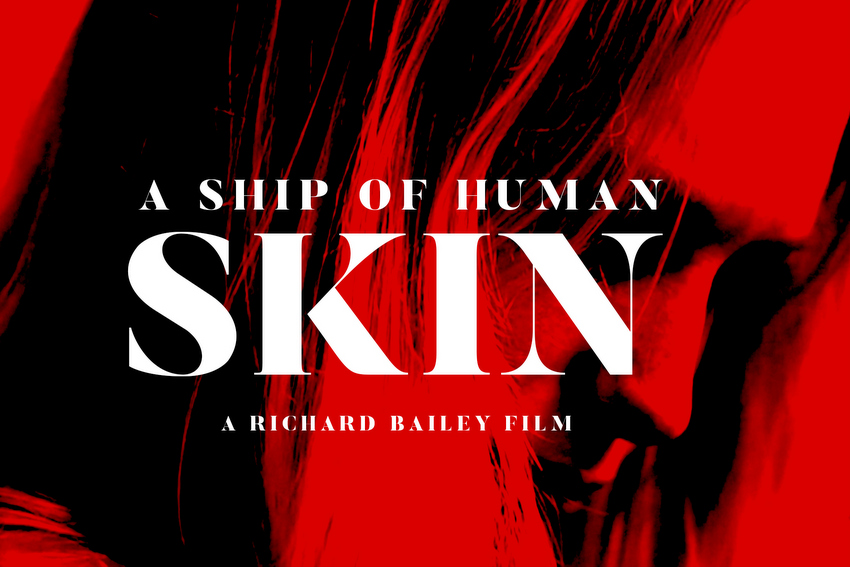
“Also, the land and sky signal some larger, inscrutable organizing principle for my characters to reckon with. I, myself, am at my most contemplative on matters of eternity, grace, and redemption when I’m outdoors in remote places”, says Richard.
indieactivity: How do you choose a project to direct?
Richard Bailey (RB): When I begin writing, I also begin producing and directing. I think about what’s available to me in terms of location, materials, and personnel, and then I think about language and images that will amplify those resources, make them cinematic and also unique.
I’m what you’d call a maximal minimalist. That is to say, I try for eye-popping visuals and dialogue that is artfully shaped and often ecstatically stylized. My budgets are small. Smaller than what you’re thinking right now. But I don’t want the films to look small. I want them to have a professional sheen and an aura of wonder about them.
And so, the choice of a project is invested with some heavy pragmatism. By the time I finish writing a scene, I’ve thought a lot about where and when I’m going to film it, and I don’t move on to the next scene until I’m sure I can produce and direct the one just written.
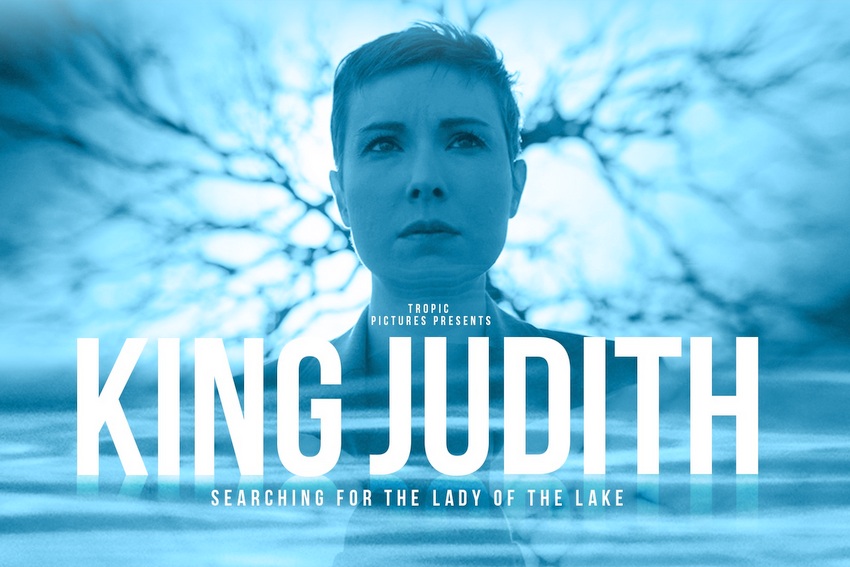
This process probably sounds too methodical to be much fun. But I feel very fortunate. I’ve never had to abandon a film. I don’t have a desk drawer full of unmade scripts; I make what I write. I’ve found a way to ride that maximal minimalist line to some interesting conclusions.
Why filmmaking and screenwriting? Why did you get into it?
Richard Bailey (RB): The draw is mysterious. I suppose I keep doing this because while making a film I’m fully occupied. It’s a mental and physical challenge, also a creative way of being. There’s something about being fully occupied in a creative endeavor that signals to me, “I’m home.”
How can a filmmaker, if she so chooses, distribute her film? How do you get it in front of an audience?
Richard Bailey (RB): Here’s my experience: for my feature film A Ship of Human Skin (2020), once it had some festival success I took it out on the road myself, showing it at galleries and cinema clubs. A Ship of Human Skin has experimental attributes. It’s beautiful, but also shot on a shoestring. I thought a DIY approach to screening the film was my best option.
But then I spoke with a sales representative, Alex Nohe. I was able to speak candidly about my film’s budget and my aspirations as an artist. As unusual a film as A Ship of Human Skin is, it received good offers. Within a month, there was a plan in place for a worldwide streaming release.
A Ship of Human Skin (Official Trailer)
For my film King Judith (2022), I eschewed the festival circuit and went to Alex directly about the film. Within a couple weeks, we had a distributor who understood the experiential and arthouse nature of King Judith. And now this film is available in wide release.
With the money I saved on festival entry fees and travel costs for DIY screenings, I produced another feature film, The Dark Sisters. When this feature is finished early in 2023, I’ll work with the same sales representative.
The process of making a movie is no longer mysterious to me. I know how to work quickly and affordably. But the process of distribution IS mysterious to me. The methods are always changing. I find that the best practice—the most economical practice—is to hire a professional who can navigate the process for me. In this way, I don’t get burned on the project I’m distributing or impeded in making my next film.
Is there anything about the making of independent film business you still struggle with?
Richard Bailey (RB): Yes. Even in independent film, it’s a “star” system. I have differences with that, I don’t like it that my chances with the main independent festivals and certain distributors are reduced because I don’t have an established film or television star in the cast. I choose actors carefully. They’re wonderful at what they do, and that should be enough.
King Judith (Official Trailer)
Talk to us about your concept of collaboration?
Richard Bailey (RB): I’m persuaded that preparedness is the advantage toward inspired collaboration. I try to have everything planned. The script is locked a month prior to shooting. We have a shooting schedule two week prior to filming. The actors and DP have time to make plans and talk to me about situations and methods. When we all know what we’re doing and when we’ll be doing it, we have the opportunity to settle down a little bit and allow a chance to enter the process. Inspiration comes to prepared spirits.
When you are offered a project, what things do you put in place to deliver a good job?
RB: I studied literature and am pretty handy with breaking down an image into concise language, so that everybody understands the mechanics of what we’re trying to do.
How do you find the process of filmmaking as an indie filmmaker?
RB: It’s a difficult process; very difficult. But just the phrase “indie filmmaking” inspires so much optimism and suggests a willingness to operate productively outside the status quo. It’s a tough process, but everyone brings their efforts honorably. Everyone wants to say they’ve made an indie film—a good indie film. I like the feeling of community in that sentiment.
Why would you choose an actor, writer or producer? What do you look for?
RB: Attributes of wonder and self-reliance, also consideration and professionalism.
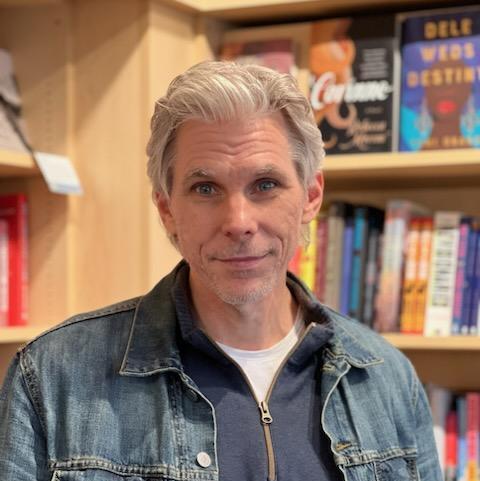
At what period in the filmmaking process do you need to start planning for distribution?
RB: The main thing for me is to understand what the film is while writing it and then continue that vision through to its completion. It doesn’t do to start second-guessing about what distributors want; for instance to introduce a style of humor that isn’t native to the film or a particular color scheme that isn’t native just because that type of humor and color scheme might be trending.
I owe it to my collaborators to make the film they signed on to make. The realization of a collective vision is the goal. In my experience, it’s more natural and comfortable to shop a film that’s become the object, or pretty close to the object, I intended when writing it. And I don’t bother my sales rep with the movie until it’s completed. I believe it’s important to talk with representatives and distributors about a completed film, not a partial film or proof of concept. In this way, we can come up with a plan that best serves the movie as it is, without speculation about what the movie might turn into.
That’s me speaking as a DIY filmmaker. Filmmakers with insistent investors probably have to consider distribution interests, trends, and interpretations early on and throughout the process of production. I hope to always be able to avoid that.
Indie filmmaking is a model of zero or small budget. How do you get a film to the audience with such a budget?
RB: The personnel on a given day consists of my DP, Jay Flowers, the actors that have scenes that day, and myself. So, that’s anywhere from four to 12 people on a given day. Jay and I handle the technical concerns, including sound. Often I’m running a second camera. While Jay is setting up the lights, I arrange props and deliver actors their wardrobe. Sometimes, we have a drone pilot with us. But, most days, it’s just a group of five or 6 people pulling together. As for editing, I handle all aspects myself.
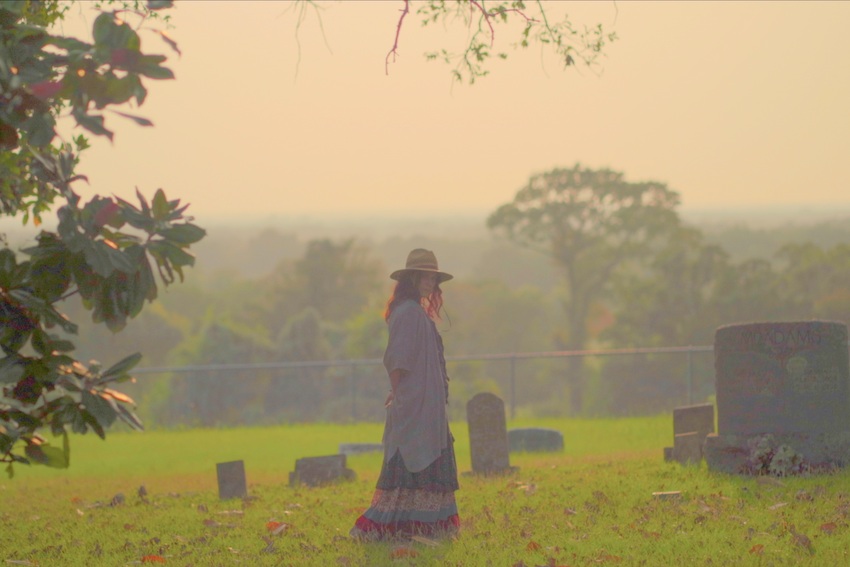
Scheduling actors fits into the way I write a script. In feature films, I don’t have characters that appear in every scene. I spread the action among core characters. I don’t think I’ve ever scheduled an actor more than eight days on a feature film, and those are not consecutive days. I’m grateful for the actors who work with me, and I’m mindful they have other responsibilities beyond the film we’re making.
As I mentioned, the processes of producing and directing begin for me with the process of writing. I’m scheduling from the get-go. My films are designed to be robust and artful and accomplished on a very low budget. The results are nice. The films get a good response from audiences, festival organizers, and distributors. People assume my films cost a million bucks a piece, and that’s very gratifying. But the truth is, I work as a teacher, an arts writer, and in book retail. My films are made from what I can afford working in these trades.
Describe your most recent work, or film, take us through pre, production and post production?
RB: I wrote A Ship of Human Skin as a stage play. The script was a finalist at the Bay Area Playwrights Festival and the Eugene O’Neill National Playwrights Conference, but it never got produced. I’m a fan of experimental theater around Dallas, where I live, and it occurred to me to approach local actors and present Ship as an independent production. I didn’t have enough capital to secure a theater and the actors for a sustained run of a staged production.
But I did have enough experience as a producer and cinematographer of artist’s films and experimental films to believe I could produce a unique and visually strong film for less cost than a stage play. And so that’s what we did, we made Ship as a micro-budget independent film. The actors in Ship are terrific. Everyone did a wonderful job. And it was my first time to work with DP Jay Flowers, who’s talents I admire and value very much.
Like I say, I enjoyed working with actors out of experimental theater on A Ship of Human Skin, and so I went the same route casting much of King Judith. King Judith had some complications in production, owing to the COVID-19 pandemic. No one got sick working on the film—thank goodness!—but we did have to restructure our production to allow for social distancing.
In the end, King Judith came through the pandemic just fine. It, too, is a micro-budget film, but the results look far bigger than the sum of its parts. I hope people will look at the IMDb pages for each film to see the lists of performers who brought their efforts so wonderfully for artful and unique results in the tradition of DIY filmmaking.
What do you hope audiences will get from the presentation of your film?
RB: Principally, I hope audiences will be delighted. I hope the images invite appreciation for the natural world and the characters’ circumstances invite thoughts on matters of selfhood and eternity. I also hope the humor shines through.
What else have you got in the works?
RB: My next film is called The Dark Sisters. It’s a unique film, also spooky and philosophically inclined. I’m proud of it and hope lots of people will see it when it’s ready in spring of 2023.
Tell us what you think of the article with Richard Bailey. What do you think of it? What ideas did you get? Do you have any suggestions? Or did it help you? Let’s have your comments below and/or on Facebook or Twitter.
Follow Richard Bailey on Social Media
Website
IMDb
Facebook
Instagram
Vimeo
MOEDER Oscar® Qualified Drama Based on MH17 Airline Disaster
OSCAR® Qualified MOEDER tells a story tragedy on the Ukrainian-Russian border
Nate & John Oscar® qualified Animation Short Directed by Jumai Yusuf
NATE & JOHN heartwarming animation short qualifies for the 97th Academy® Awards
Dreama Team by Chad Weber & Steve Vanderheide Acquired by Freestyle for November Release
Feature Documentary Dreama Walton Sets Digital Debut for Global VOD Platforms and on DVD on Nov 1, 2024
LGBTQ+ Film, “Muscat” by Philippe Grenier Qualified the Oscars®
Muscat is an audacious exploration of a young boy confronted with the discovery of his identity
Joy of Horses by Ava Justin acquired by BMG Global
Joy of Horses by Ava Justin, now available across digital streaming platforms
Vanessa Valente Talks Reality TV, Online Bullying and Healing on Sisters Uncensored Podcast
The Temptation Island’s reality TV star joins Sisters Uncensored Podcast October 16th
Oscar® qualifying Sunflower: A story of resilience in a war-torn country
Mateusz Balcerek’s Oscar® qualifying Sunflower is an extraordinary story of resilience in a war-torn country









